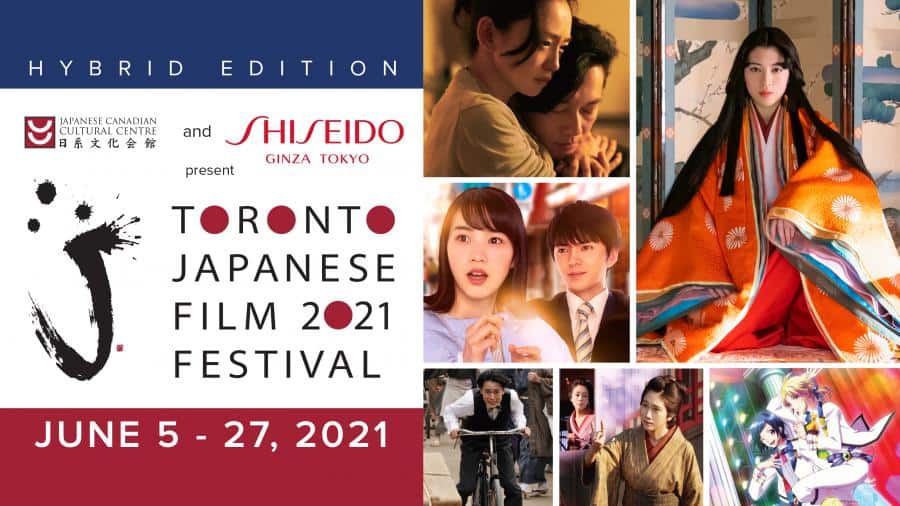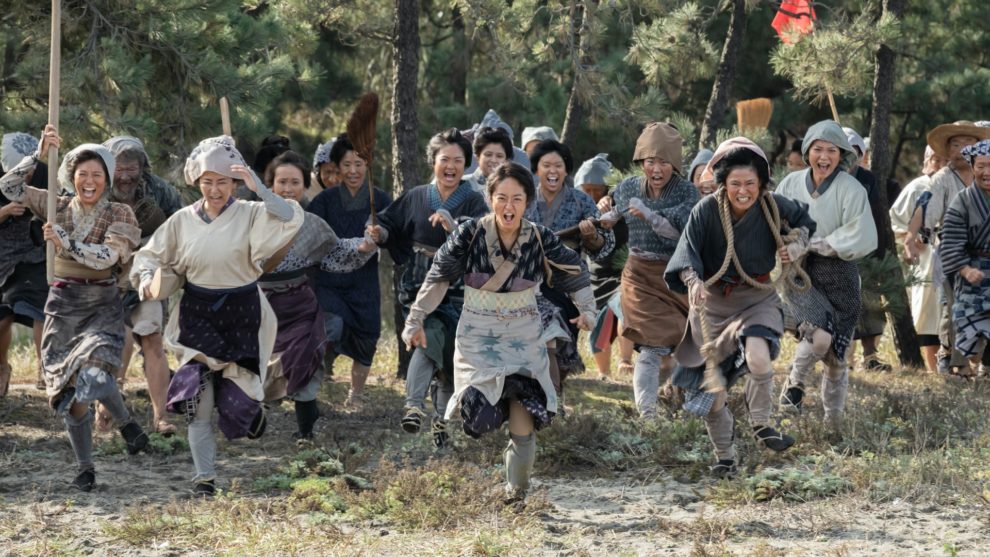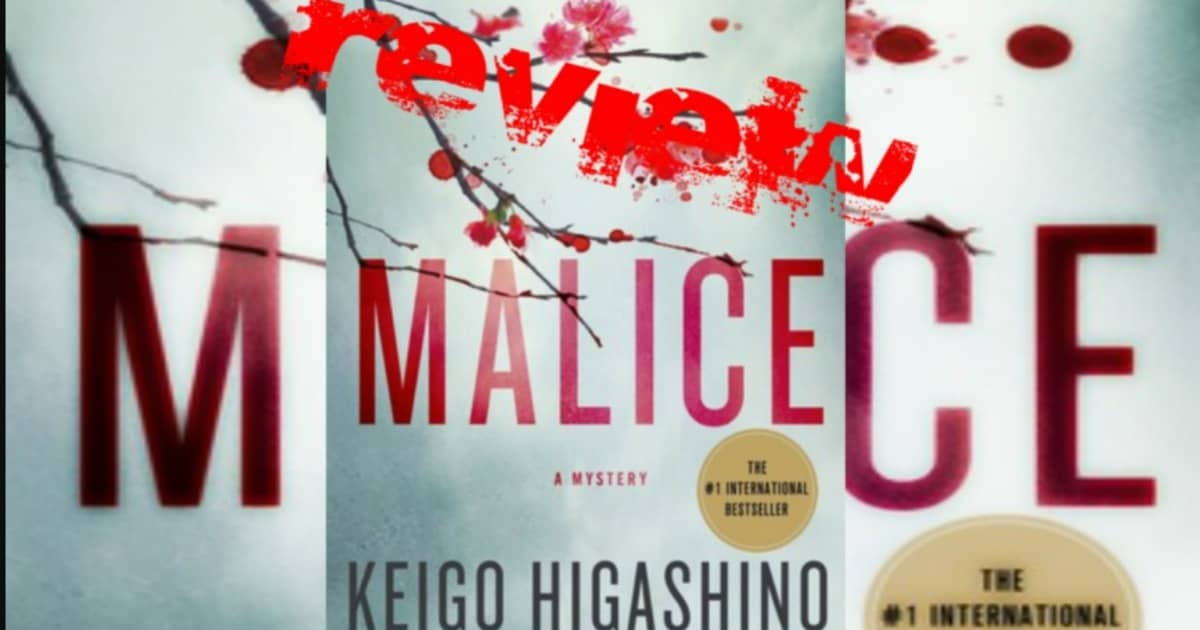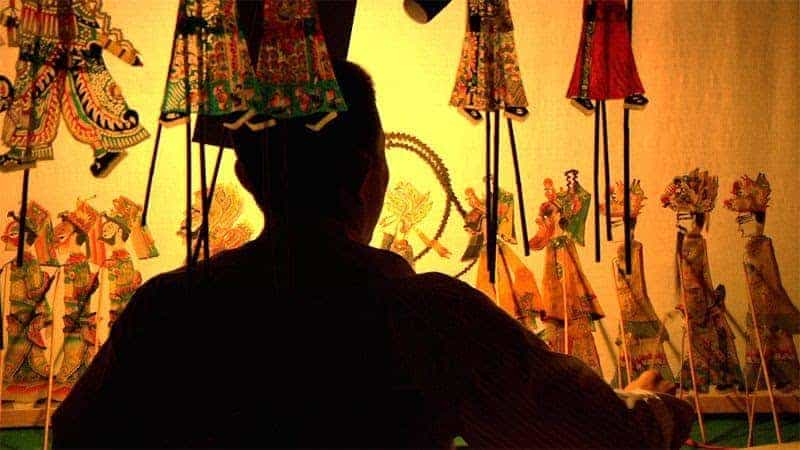When he is not dealing with samurais in various approaches (from realistic dramas to comedies), Katsuhide Motoki seems to focus on various aspects of corruption and the people dealing with it, as he did in the excellent “Recall”. This time his work deals with a series of actual incidents that took place in a Toyama fishing village 103 years ago, in 1918. A number of “ordinary” women raised their voices against the unreasonable government policies, with their actions getting picked up the press, and eventually evolving to “Rice Riots”, a nation-wide movement.
“Angry Rice Wives” is screening at Toronto Japanese Film Festival

The protagonist, Ito, a farmer's daughter who was married in the village and is one of the few literate women there, lives in the aforementioned area with her husband, three children and mother-in-law. During July and August, the men in the village find work in big boats away from the area, essentially leaving their wives to fend for themselves. Ito, like the rest of the young women, carry huge baskets with rice from the area to be transported to other places, in order for the merchants who are in charge mainly of rice production, to get better prices. This tactic, however, has resulted in the rice price getting higher and higher in Toyama, to the point that the villagers cannot afford them.
Desperate, the women in the village form a group under Ito, and begin to ask from the local merchants and the man in charge of the area, Sentaro Kuroiwa, to lower the priced and give them a stipend (in rice again) to be able to support their families. When they deny and the local navy guard headed by Takeshi Kumazawa side with the “strong”, the women decide to riot. Their path, however, is anything but easy, Ito is not exactly accepted as an outsider, failures follow one another, internal fighting commences, while Kuroiwa finds an ally in a rather cunning woman, Washida. Minoru Ichinose, a young journalist, is following the story and eventually becomes fascinated by the struggle of the women.
Katsuhide Motoki directs a film that could be described as “entertaining, educational realism”, with his approach focusing on both presenting the actual events and including elements that make the movie appealing to the mainstream audience. The main element of the second aspect in this case is the acting, with a number of the female casts giving rather captivating performances, filled with gusto and nuance. Mao Inoue is the undisputed star as Ito, with her emitting a number of different psychological circumstances, including despair, resolve and hope with equal artistry. Shigeru Muroi as the half crazy/half genius older lady who seems to be one of the leaders of the women in the community is also great, with her performance lingering mostly towards the comedic, but including well-presented dramatic elements also. Tokie Hidari is excellent as the politically cunning Washida while Renji Ishibashi as Sentaro Kuroiwa is as good a villain as he always is. The highest point of the acting however, and one that also exemplifies Motoki's direction are the plethora of scenes where many characters run towards a common goal, with the precise choreographies being a wonder to look at.
The cinematography by Yasuhiko Minami also follows the entertainment path, with the intense yellows and reds looking particularly swell, also because these colors have come to signify the past for Japanese cinema. The capturing of the choreographies and of the rather realistic settings, and the many fighting scenes (particularly the ones on the beach) is also impeccable, adding even more to the visual prowess of the production.
The fact that Motoki has included a narrator that explains historic elements works towards the educational part, while winking at the concept of Benshi, in a meta approach that also adds to the entertainment aspect through a kind of quirky humor that is quite frequent in the film. The presentation of life in the area at the time is also accurate, with Motoki highlighting the gossipy, meddling, feisty, always afraid of outsiders and always eager to help the neighbor mentality that characterizes people who live in villages. The depiction of how the families are structured also moves towards the same path. Furthermore, the comments on capitalism and its blights, and the how the “capital” and the authorities go hand-in-hand cement this approach. Lastly, the whole ‘women's riot' concept can be perceived as a comment about the current situation of women in Japan, that scores among the lowest in gender gap ranking among the developed countries.
Isao Kawase's editing implements all the aforementioned elements in the best fashion, through a rather fast pace that suits the temperament of the protagonists but also the episodic nature of the narrative.
Considering that Motoki's effort does not even hit the regular reef of Japanese cinema, regarding unnecessarily long duration, and the great mix of history with entertainment, “Angry Rice Wives” emerges as of the most appealing movies of the year.
















